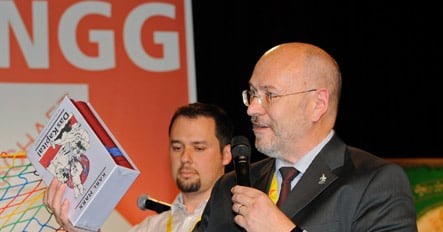“Even while we’re listening to the president’s beautiful words, we have Dieter Hundt, the president of the Confederation of German Employers’ Associations (BDA), telling us ‘there will be no universal job-guarantee’, ” he said in an interview given on Saturday in Berlin.
According to Möllenberg, going into discussions with this attitude does not demonstrate a new spirit of togetherness, but “a one-sided insistence on false viewpoints.” He also rejected the latest proposal of the German chamber of commerce and industry (DIHK) to combat increasing sick-leave figures by reducing wages in the first days of sickness. “It’s the same cynical argument that employers have been peddling for years. This is how human beings get reduced to monetary costs.”
Köhler called for a new “spirit of togetherness” in Sunday’s Bild am Sonntag newspaper. According to Köhler, the experience of the last few years showed that a good social partnership between employers and workers has led to successes in reducing unemployment.
Köhler gave his support to new instruments that allow employees to benefit from a company’s success. “For me, that means profit-sharing and sharing productive property, as long as the risk is spread fairly,” he said. Köhler sees much greater scope for the development of this kind of social partnership than is practised at present.



 Please whitelist us to continue reading.
Please whitelist us to continue reading.